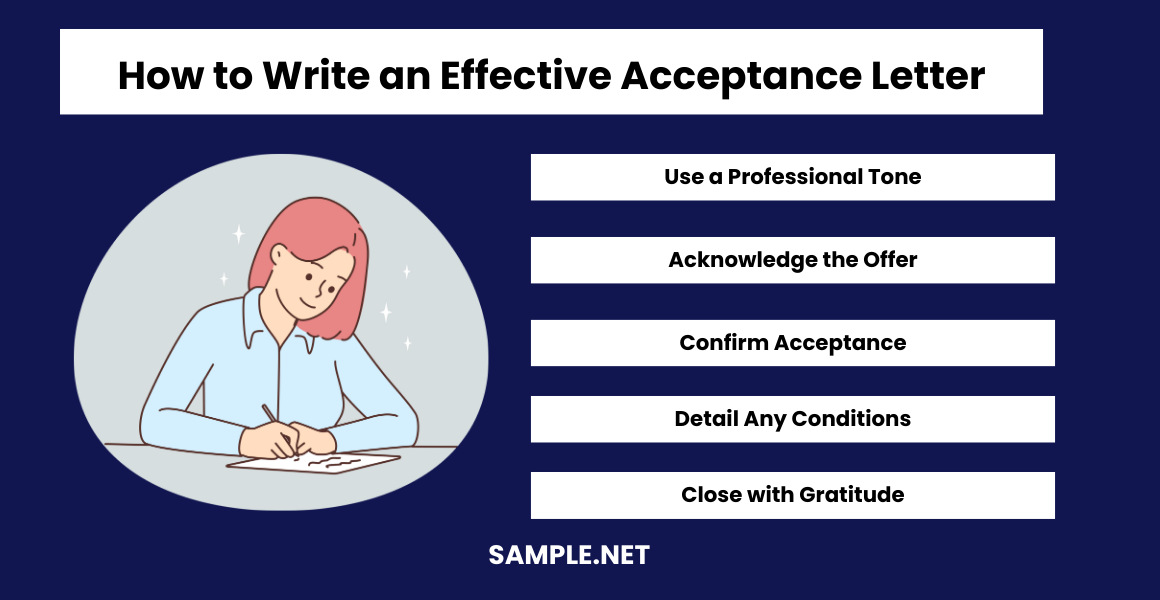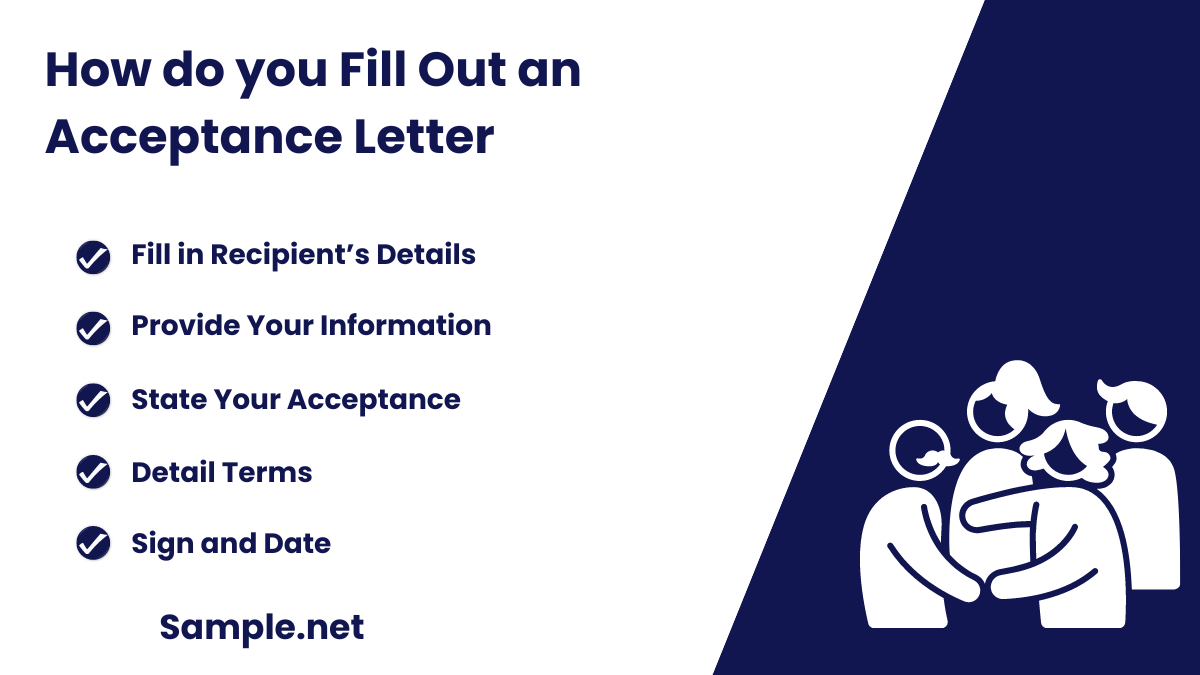Acceptance Letter Sample
-
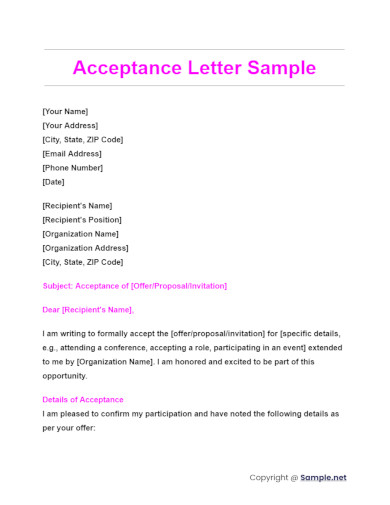
Acceptance Letter Sample
download now -
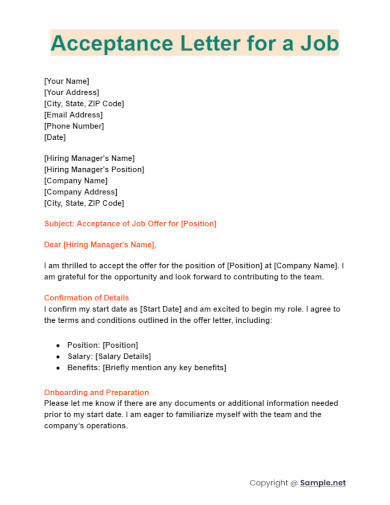
Acceptance Letter for a Job
download now -
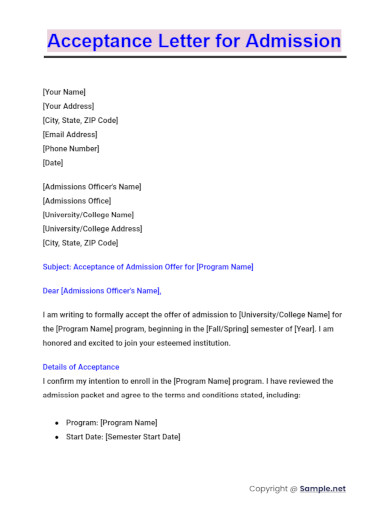
Acceptance Letter for Admission
download now -
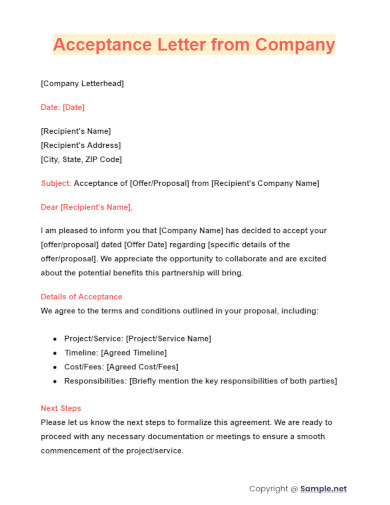
Acceptance Letter from Company
download now -
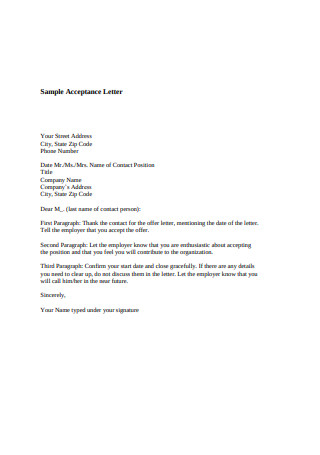
Sample Acceptance Letter
download now -

Acceptance Letter Sample
download now -
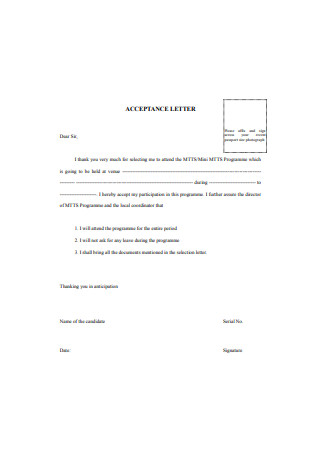
Acceptance Letter Format
download now -
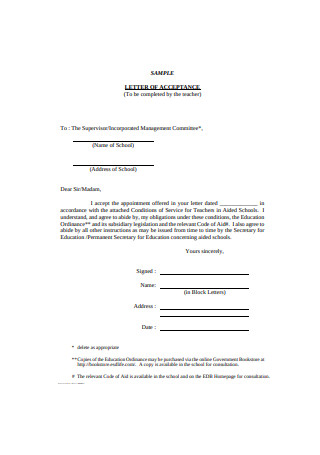
Letter of Acceptance
download now -
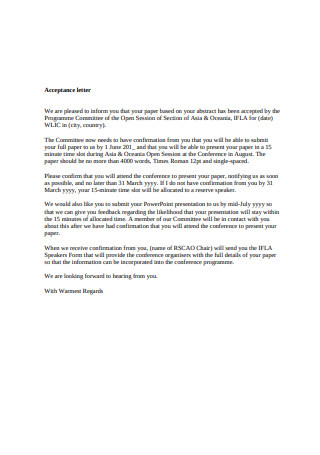
Basic Acceptance letter
download now -
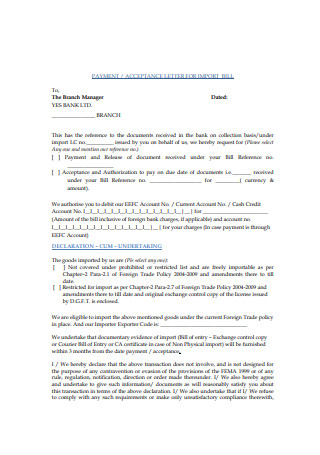
Payment Acceptance Letter
download now -
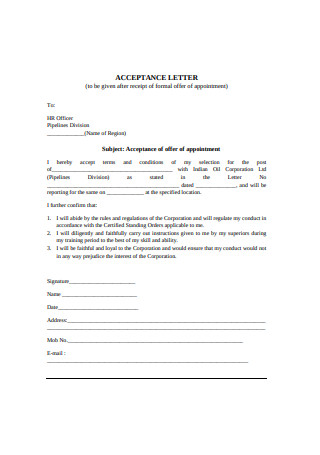
Basic Acceptance Letter Format
download now -
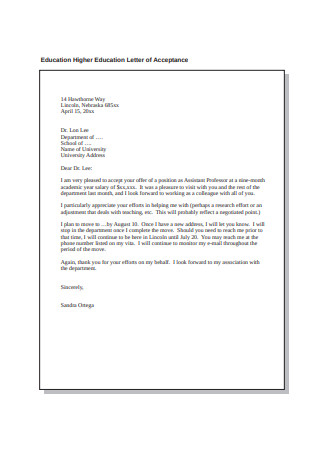
Higher Education Letter of Acceptance
download now -
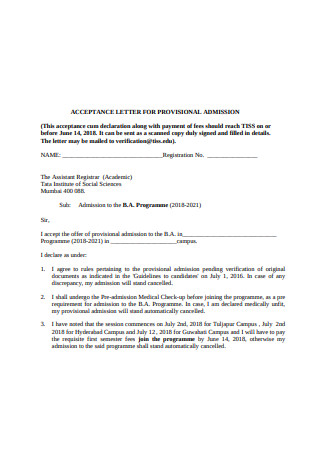
Acceptance Letter for Provisional Admission
download now -
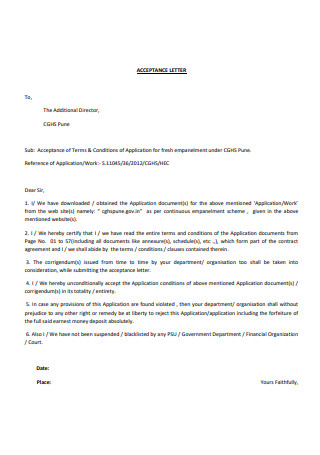
Formal Acceptance Letter
download now -
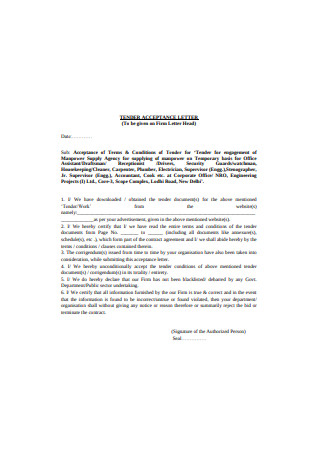
Tender Acceptance Letter
download now -
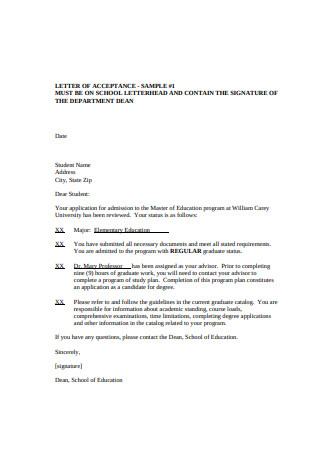
Letter of Acceptance Sample
download now -
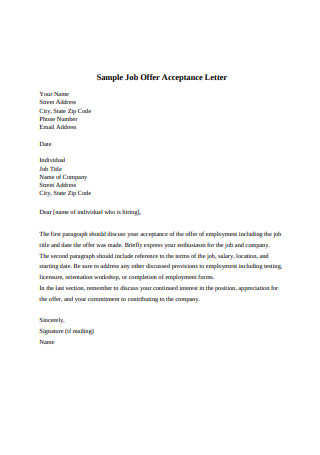
Sample Job Offer Acceptance Letter
download now -
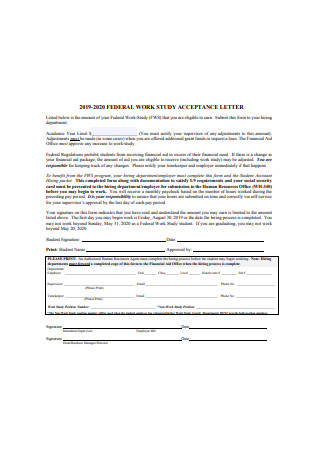
Federal Work Study Acceptance Letter
download now -
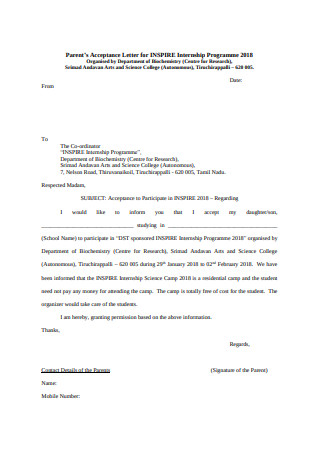
Parent’s Acceptance Letter for Inspire Internship Programme
download now -
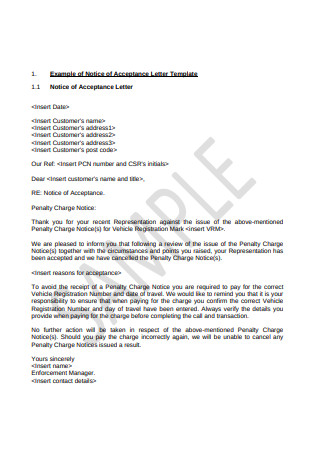
Notice of Acceptance Letter Sample
download now -
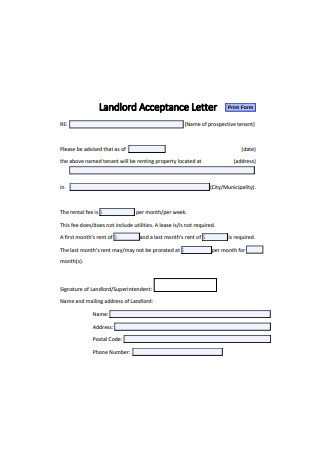
Landlord Acceptance Letter
download now -
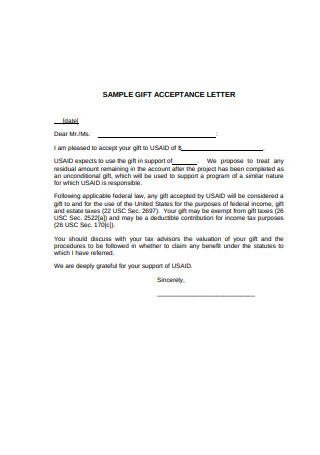
Gift Acceptance Letter
download now -
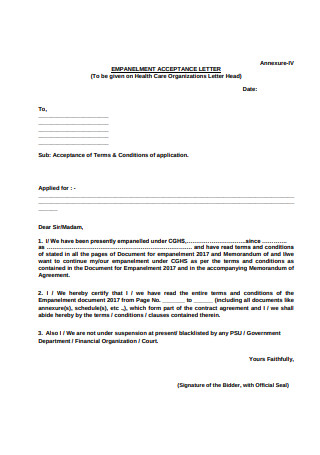
Empanelment Acceptance Letter
download now -
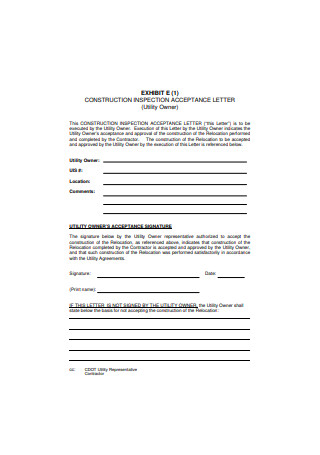
Construction Inspection Acceptance Letter
download now -
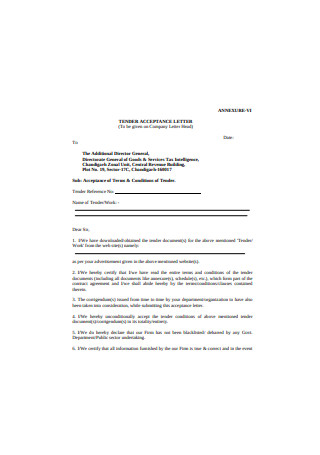
Tender Acceptance Letter Format
download now -
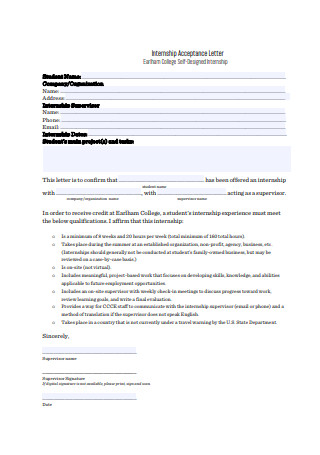
Internship Acceptance Letter
download now -
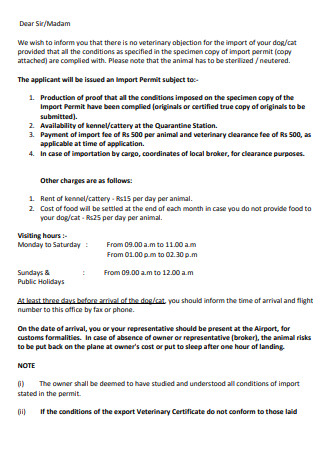
Acceptance Letter Example
download now -
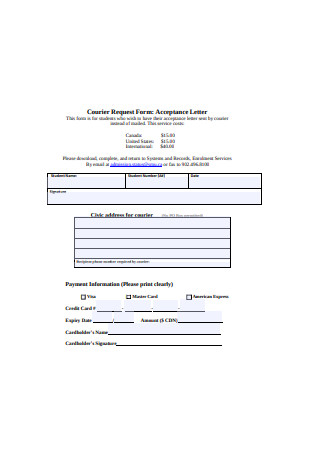
Acceptance Letter Request Form
download now -
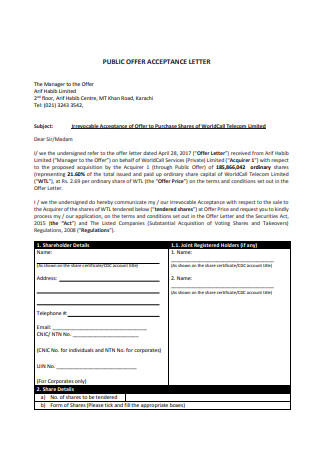
Public Offer Acceptance Letter
download now -
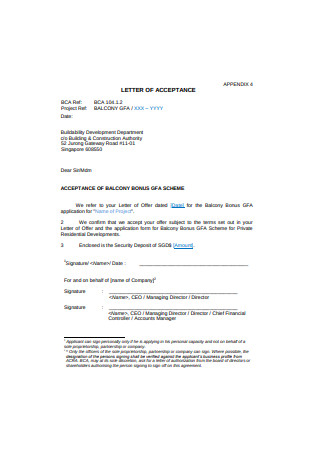
Basic Letter of Acceptance
download now -
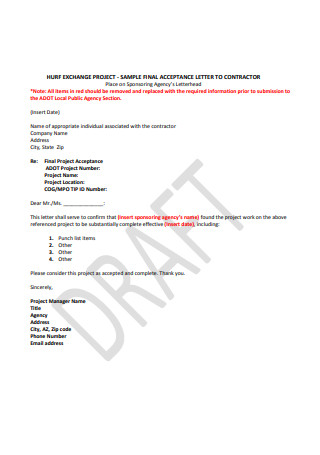
Sample Final Acceptance Letter to Contractor
download now -
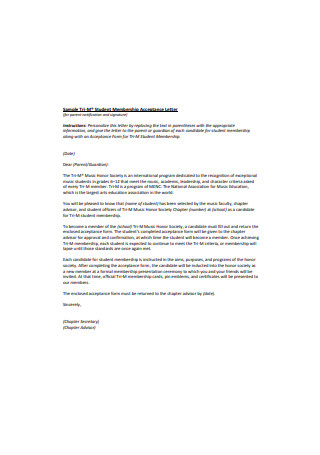
Student Membership Acceptance Letter
download now -
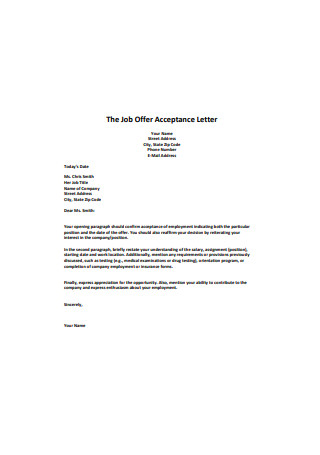
Job Offer Acceptance Letter
download now -
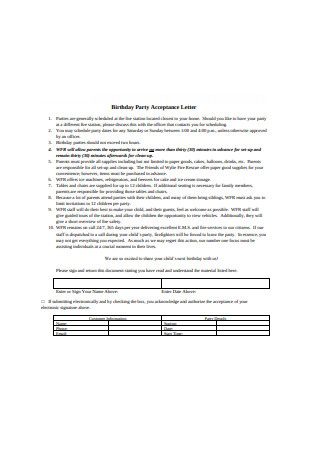
Birthday Party Acceptance Letter
download now -
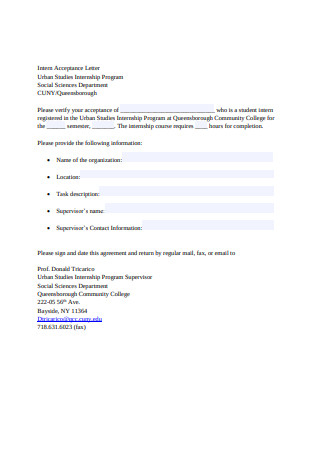
Intern Acceptance Letter
download now -
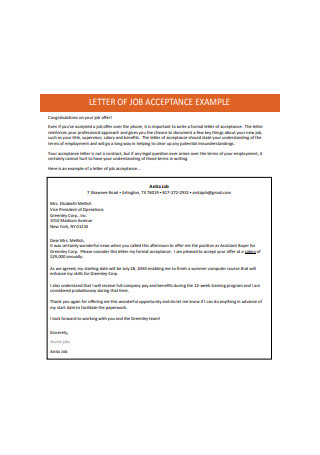
Letter of Job Acceptance Example
download now -
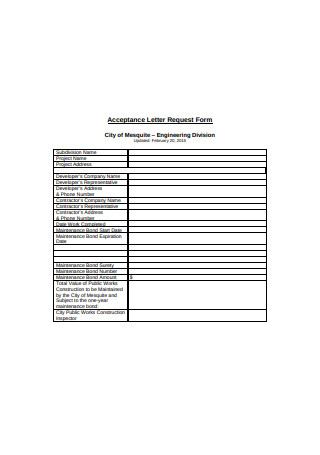
Acceptance Letter Request Form Example
download now -
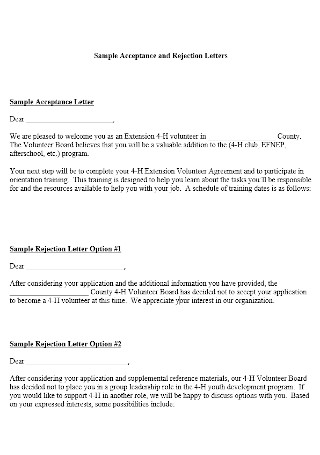
Sample Acceptance and Rejection Letter
download now -
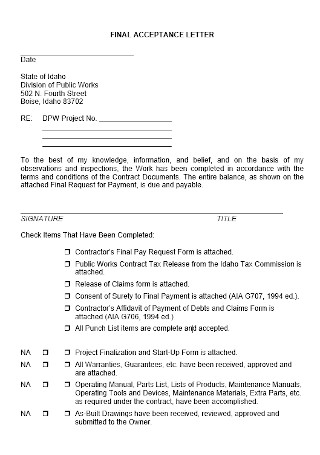
Final Acceptance Letter Template
download now
FREE Acceptance Letter s to Download
Acceptance Letter Format
Acceptance Letter Sample
What is Acceptance Letter?
Why Do You Need an Acceptance Letter?
Five Sly Ways to Get Hired
How Do You Write a Good Acceptance Letter? (Tips to Remember)
How do you write an acceptance letter?
How to Write a Job Acceptance Letter?
How to Write an Effective Acceptance Letter?
How To Write an Admissions Acceptance?
How do you write a note of acceptance?
How do you fill out an acceptance letter?
How do you accept an offer in a sentence?
Do I need to write an acceptance letter?
How do I respond to an offer letter?
What is a statement of acceptance?
What is the salutation for an acceptance letter?
How do you write a good acceptance email?
How do you address a letter of acceptance?
Download Acceptance Letter Bundle
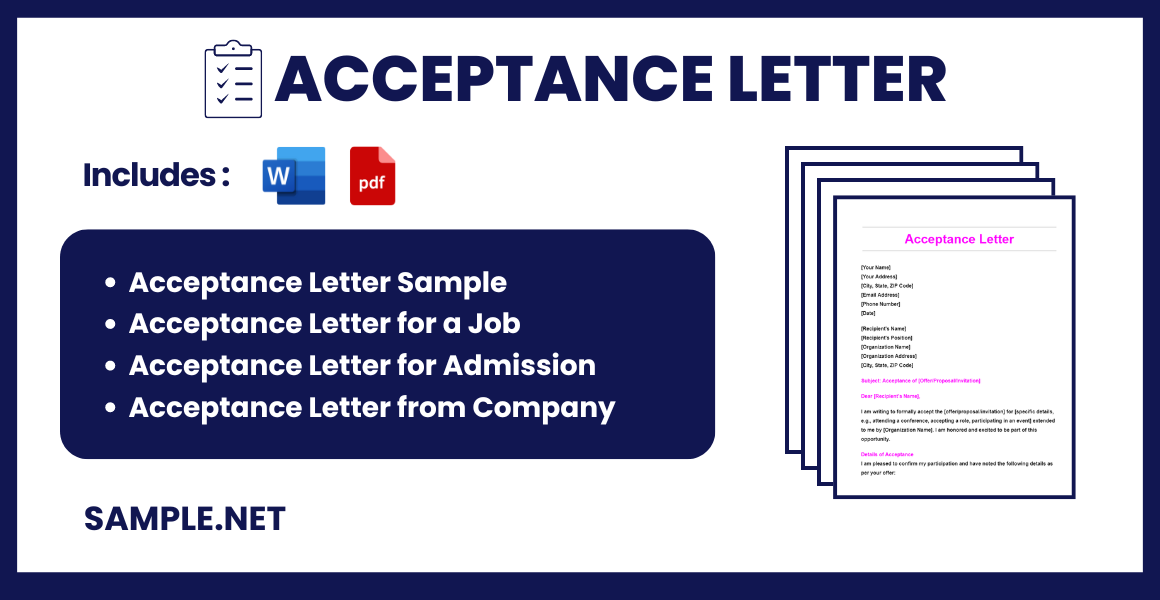
Acceptance Letter Format
[Your Name]
[Your Address]
[City, State, ZIP Code]
[Email Address]
[Phone Number]
[Date]
[Recipient’s Name]
[Recipient’s Position]
[Company/Organization Name]
[Company/Organization Address]
[City, State, ZIP Code]
Subject: Acceptance of [Offer/Position/Proposal]
Dear [Recipient’s Name],
I am pleased to accept the [offer/position/proposal] of [specific details] with [Company/Organization Name]. Thank you for this opportunity.
Details of Acceptance
Confirm the terms and conditions, such as start date, position, and any other relevant details.
Expression of Gratitude
Express your gratitude and enthusiasm for the opportunity.
Next Steps
Mention any next steps, such as paperwork, meetings, or orientations.
Looking forward to working with you.
Sincerely,
[Your Name]
What is Acceptance Letter?
An acceptance letter is a formal document sent by an individual to officially accept an offer or proposal. It confirms your intent to join or participate and outlines any agreed terms. Whether accepting a job, admission, or other opportunity, an acceptance letter solidifies the agreement.
But contrary to what many might believe, acceptance letters aren’t only for a formal purpose, as they can also serve an informal intention. Its tone and content will depend on what you’re writing the letter for and who you are addressing it to. Admission acceptance letters, promotion acceptance letters, and internship acceptance letters are some examples of acceptance letters written for a formal purpose, while wedding acceptance letters fall under the informal category.
Why Do You Need an Acceptance Letter?
Before we get into it, let’s make one thing clear: no one is forcing you to send an acceptance letter.
Writing a formal letter after receiving a job offer, a wedding invitation, or an internship position is not mandatory. However, it’s proper etiquette for anyone to acknowledge this opportunity and express their gratitude if they decide to accept it. You have to remember that even if a recruitment officer already offered you the role, it doesn’t mean there isn’t a waitlist for other qualified candidates that might accept it if you fail to make your decision known. That’s one reason why new recruits have to act fast if they wish to secure a spot for themselves before it’s too late. And even if you are on the fence about your decision, you can still weigh down your options up until they ask you to sign a contract.
Five Sly Ways to Get Hired
Time is crucial when you’re on a job hunt. It’s a nerve-wracking process that can put anyone on edge. Imagine waiting for a call from a company you’ve always dreamed of working for, only never to receive it even if you played by the book. But some things happen because they were meant to, while others happen when you don’t do enough. When you’re on a job search, you want to make sure you get the employment letter for a job offer before someone else does. Competition can be fierce, given the 3.6% unemployment rate reported by the U.S. Bureau of Labor Statistics in October 2019. With that said, you might want to keep the following tips in mind.
How Do You Write a Good Acceptance Letter? (Tips to Remember)
News channel CNBC reports the number of job vacancies in the U.S. at a staggering 7.6 million, as of the beginning of 2019. With millions of job seekers searching for the same opportunities as you are, standing out is a must. Letter writing might not be one of your strongest skills, but it doesn’t mean you shouldn’t try to master the craft for formality’s sake. You’ll want to impress your new boss with a brief yet professional correspondence with the help of the guidelines below.
1. Make It Short
Note that you aren’t the only person who sent in an application and that there are a dozen other individuals who are in the same position as you. Chances are the recruitment officer of the job or internship you are applying for only has time to skim through the letter for important points. These are busy people who want to get the job done. If you wish to get your message across quickly, cut right to the chase. Try not to stray away from what’s relevant by focusing on matters that your recipient will appreciate.
The same ideas apply for acceptance letters written for event invitations, payments, scholarships, and college admissions. You may also see Letter of Support
2. Use a Professional Tone
Incorporate the same letter format as you would with a business letter. Despite how excited you are to get the news you waited what seems like forever for, you need to know how to maintain your composure and remain professional in your response. Be gracious enough to address your recipient correctly, of course, with the right name and title. You don’t want to get these details wrong, especially if it’s someone who did you a favor. Be polite with your greeting since it’s the first thing people will read. Make sure you get the format right and that you’re careful enough to choose the appropriate set of words so as not to come off too casual.
3. Organize Your Ideas
One way to boost readability is to organize the points you want to convey before you start writing. Aim for a structure that will present information in a logical order by drafting your letter to find out what details to prioritize. A simple “yes” might get the job done, but you’ll want to make sure you have everything figured out to steer clear of any mistakes.
At this point, you’re only working on a rough draft that you’ll need to edit later on. Thus, remember to proofread your letter for any grammar and spelling errors that need correction before you submit the acceptance letter. You may also see Authority Letter
4. Express Your Gratitude
Opportunities don’t come by very often. If someone offers you a job, you’ll want to thank the person for even considering you as a qualified candidate. You can talk about your excitement to be a part of the company’s workforce, as well as your desire to contribute what you can for the team. But again, remember to keep this part of the letter simple and straightforward. A few words of thanks should be enough to make your intentions known. You may also see Nomination Letter
5. Clarify Details
There may be parts of an invitation or offer that you wish to confirm with your recipient. There’s always a possibility of confusing or misunderstanding data based on what you understand from what the recipient means. In such cases, it’s best to restate them in your letter for clarification. It can be in regards to your work requirements, compensation rate, tasks, and other relevant details. This information will depend on the subject and purpose of the letter, so it’s best to think about what you want to make clear before you begin writing. You may also see Salary Increase Letter
6. Stay Positive
Acceptance letters don’t always have to respond to a job offer. In some instances, you might have to use it to reply to an employee’s resignation letter. You don’t want to say anything that could put you in a legal fiasco with the other party. Also, consider this as your last chance to leave a good impression on your recipient. It’s especially vital when corresponding with people you have worked with or will work with on an endeavor. You may also see Petition Letter
How do you write an acceptance letter?
Writing an acceptance letter confirms your acceptance of an offer or invitation. Follow these steps for a professional and effective letter:
- Start with a Formal Greeting: Begin with a respectful salutation, such as “Dear [Name]”.
- Express Gratitude: Thank the person or organization for the offer or invitation.
- Confirm Acceptance: Clearly state your acceptance of the offer or invitation.
- Outline Terms: Summarize any important terms or conditions agreed upon.
- Conclude Politely: End with a polite closing and your signature. You may also see Authorization Letter
How to Write a Job Acceptance Letter?
A job acceptance letter formally accepts a job offer. Here’s how to write one:
- Begin with a Formal Salutation: Address the letter to the hiring manager.
- Express Thanks: Show appreciation for the job offer.
- State Acceptance: Clearly state your acceptance of the job offer.
- Confirm Details: Mention the start date, position, and any other relevant details.
- End Professionally: Conclude with a polite closing and your contact information, similar to a Consent Letter.
How to Write an Effective Acceptance Letter?
An effective acceptance letter should be clear, concise, and professional. Follow these steps:
- Use a Professional Tone: Maintain a formal and respectful tone throughout the letter.
- Acknowledge the Offer: Thank the sender for the offer or invitation.
- Confirm Acceptance: Clearly accept the offer or invitation.
- Detail Any Conditions: Mention any specific terms or conditions if applicable.
- Close with Gratitude: End with a polite closing and your signature, similar to a Formal Letter.
How To Write an Admissions Acceptance?
Writing an admissions acceptance letter confirms your acceptance of a place in a school or program. Follow these steps:
- Address Properly: Start with a formal salutation to the admissions office.
- Express Gratitude: Thank the admissions committee for the offer.
- Confirm Acceptance: Clearly state your acceptance of the admission offer.
- Include Important Details: Mention any required information such as enrollment deposits or forms.
- Close Respectfully: End with a polite closing and your contact information, akin to a To Whom It May Concern Letter & Email.
How do you write a note of acceptance?
A note of acceptance is a brief letter acknowledging acceptance of an offer or invitation. Here’s how to write it:
- Start with a Greeting: Address the person or organization politely.
- Express Gratitude: Thank them for the offer or invitation.
- Accept the Offer: Clearly state your acceptance.
- Include Any Necessary Details: Mention any important terms or details.
- Conclude Politely: End with a polite closing and your signature, similar to an Event Invitation Letter.
How do you fill out an acceptance letter?
Filling out an acceptance letter involves providing necessary information and confirming acceptance. Here are the steps:
- Fill in Recipient’s Details: Include the name and address of the recipient.
- Provide Your Information: Include your name, address, and contact details.
- State Your Acceptance: Clearly indicate your acceptance of the offer.
- Detail Terms: Mention any agreed terms or conditions.
- Sign and Date: Include your signature and the date, much like a Permission Request Letter or Apology Letter.
How do you accept an offer in a sentence?
You can accept an offer with a simple sentence: “I am pleased to accept your offer.” This formal statement suffices for a Character Reference Letter acceptance.
Do I need to write an acceptance letter?
Yes, writing an acceptance letter is essential for formally acknowledging and accepting an offer, similar to a Confirmation Letter.
How do I respond to an offer letter?
Respond to an offer letter by expressing gratitude, confirming your acceptance, and reiterating key details. This approach is also effective when acknowledging a Referral Letter.
What is a statement of acceptance?
A statement of acceptance is a formal declaration confirming your acceptance of an offer or proposal, akin to confirming a Donation Letter.
What is the salutation for an acceptance letter?
Use a formal salutation for an acceptance letter, such as “Dear [Recipient’s Name],” similar to starting a Termination Letter.
How do you write a good acceptance email?
A good acceptance email includes a polite greeting, gratitude, confirmation of acceptance, key details, and a respectful closing. This method also applies when acknowledging a Personal Reference Letter.
How do you address a letter of acceptance?
Address a letter of acceptance formally with the recipient’s title and full name, similar to how you would address a Landlord Reference Letter.
In conclusion, an acceptance letter is crucial for confirming your acceptance of various offers, from job positions to academic admissions. This article has provided a comprehensive guide on writing an effective acceptance letter, including Sample Letters, forms, and practical uses. Whether you’re preparing an acceptance letter for a job or any other purpose, understanding its components and proper formatting is essential. Always ensure your acceptance letter is clear, professional, and well-structured to make a lasting impression. For further guidance, consider the relevance of a Warning Letter when needed.

